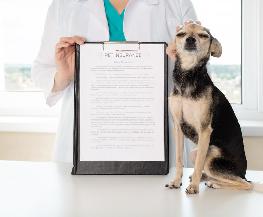Recommended Stories
Pet insurance gross written premiums grew more than 20% in 2023
The sector’s gross written premiums have been growing by 20%-30% annually since 2020.
California contractor fesses up to workers' comp fraud charges
The contractor underreported payroll by nearly $1 million to lower his workers’ comp premium.
6 tips for working from home securely
With so many working remotely, cybersafety becomes a paramount concern for businesses and their employees.
Resource Center

Guide
Sponsored by gryphon.ai
The Ultimate Guide to SMS/Text Messaging Compliance
This guide empowers insurance carriers and risk managers to navigate complex regulations, safeguarding their brands from costly SMS and text messaging penalties.

White Paper
Sponsored by Origami Risk
Build or Buy? Considering the Critical Decisions in P&C Core Insurance Cloud Digitization Projects
Navigating the complexities of P&C core insurance digitization is no easy task. Explore the critical decisions between building or buying and how to achieve operational excellence in this white paper.

White Paper
Sponsored by Melissa
Clean Your Data to Win the Customer Retention War
As more customers “unbundle” their insurance products and spread their business among many carriers, agents must look for creative strategies to retain and grow business. Download this white paper to learn top strategies to ensure success in 2024.
PropertyCasualty360

Don’t miss crucial news and insights you need to make informed decisions for your P&C insurance business. Join PropertyCasualty360.com now!
- Unlimited access to PropertyCasualty360.com - your roadmap to thriving in a disrupted environment
- Access to other award-winning ALM websites including BenefitsPRO.com, ThinkAdvisor.com and Law.com
- Exclusive discounts on PropertyCasualty360, National Underwriter, Claims and ALM events

 Copyright © 2024 ALM Global, LLC. All Rights Reserved.
Copyright © 2024 ALM Global, LLC. All Rights Reserved.











